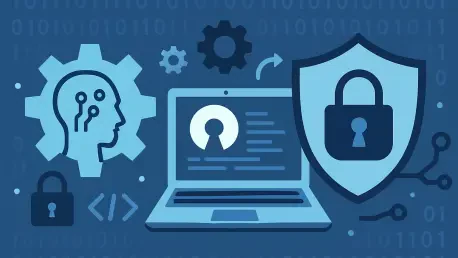In an era where technology shapes nearly every aspect of daily life, the open source community stands as a cornerstone of innovation, driving solutions that are accessible, secure, and collaborative across the globe. This year, the Apache Software Foundation (ASF) hosts its flagship event, Community Over Code North America, from September 11-14 at the Hyatt Regency Minneapolis in Minnesota. Marking over 25 years of fostering global collaboration, this gathering unites developers, committers, and leaders in a vendor-neutral space to push the boundaries of open source software. With a packed agenda featuring cutting-edge topics and influential speakers, the event promises to chart new paths for the future of technology. Attendees can expect deep dives into pressing issues and emerging trends, setting the stage for meaningful advancements in the field.
Exploring Key Themes and Innovations
Artificial Intelligence and Governance in Focus
The intersection of artificial intelligence (AI) and open source principles takes center stage at this event, reflecting a growing emphasis on ethical technology development. Sessions like “Fixing What AI Misses: Context-Aware and Access-Safe Search AI” by Nicholas Knize of Lucenia address the nuances of creating AI systems that prioritize user safety and relevance. Meanwhile, Lisa N. Cao of Datastrato explores “Why Open Source is Key to Future Data and AI Governance,” highlighting how transparent frameworks can mitigate risks associated with data misuse. A workshop on “Mastering Browser Testing with Geb and AI” by Jonny Carter of Adaptavist further demonstrates practical applications, showing how open source tools enhance testing efficiency. These discussions underscore a shared recognition that AI must evolve responsibly, with community-driven standards ensuring accessibility and fairness in deployment across industries.
Beyond theoretical insights, the event tackles actionable strategies for integrating AI into real-world systems while maintaining ethical boundaries. The focus on governance reveals a consensus that open source methodologies offer a robust foundation for addressing challenges like bias and privacy concerns. Presenters emphasize the importance of collaboration in developing tools that are not only innovative but also trustworthy. By bringing together diverse perspectives, the sessions aim to inspire attendees to adopt best practices in AI implementation, ensuring that advancements benefit a wide range of stakeholders. This collective push toward responsible innovation signals a maturing approach to technology that prioritizes societal impact alongside technical progress.
Security as a Community Priority
Security remains a critical concern in the rapidly evolving tech landscape, and this event dedicates significant attention to fortifying systems through collaborative efforts. Reet Kaur of CISO presents “Hacking the Machine: Unmasking the Top 10 LLM Vulnerabilities and Real-World Exploits,” shedding light on the risks posed by large language models and offering strategies to counter them. Similarly, Adam Saghy of BaaSFlow discusses “Community-Driven Security: Improving Fineract Through Open Collaboration,” illustrating how shared knowledge can enhance platform resilience. These talks reflect a unified stance on the necessity of proactive measures to safeguard emerging technologies from potential threats.
Delving deeper, the security track emphasizes the power of community in identifying and resolving vulnerabilities before they escalate into major issues. By fostering an environment where developers can openly share challenges and solutions, the event reinforces the idea that collective vigilance is key to maintaining trust in digital ecosystems. The sessions also highlight practical tools and methodologies that organizations can adopt to strengthen their defenses. This focus on actionable outcomes ensures that attendees leave equipped with insights to implement robust security frameworks, addressing both current risks and anticipating future challenges in an increasingly connected world.
Engaging the Community Beyond Sessions
Keynote Insights and Global Perspectives
The keynote addresses at Community Over Code North America set a powerful tone for the event, blending educational and global viewpoints on open source impact. Michael “Mr. B” Bratsch, a teacher and community builder, delivers “The Future is Taught,” exploring how education shapes the next generation of technologists through open source values. Complementing this, Omar Mohsine from the United Nations Office of Digital and Emerging Technologies speaks on “Building Digital Public Foundations: Open Source at the United Nations,” emphasizing its role in creating equitable digital infrastructure worldwide. These presentations highlight a broader vision for technology as a tool for societal progress, bridging local initiatives with international goals.
Further enriching the dialogue, these keynotes inspire attendees to think beyond technical achievements and consider the human element in open source development. The emphasis on education reveals how foundational learning can empower diverse communities to contribute to technological advancements. Meanwhile, the global perspective underscores the importance of inclusive policies that ensure technology serves as a public good. Together, these talks encourage a holistic approach, prompting participants to reflect on how their work influences both immediate ecosystems and the wider world, fostering a sense of shared responsibility.
Informal Collaboration Through Birds of a Feather
Evening Birds of a Feather (BoF) sessions provide a unique opportunity for ASF community members to engage in candid, unstructured discussions. These informal gatherings facilitate the exchange of ideas on project challenges, future roadmaps, and innovative solutions in a relaxed setting. By breaking down formal barriers, BoF sessions nurture deeper connections among attendees, allowing for spontaneous brainstorming that often leads to actionable outcomes. This format proves essential in maintaining the event’s legacy as a hub for community-driven progress, where every voice can contribute to shaping the direction of open source initiatives.
Additionally, the value of BoF sessions lies in their ability to address niche topics that might not fit into the main agenda but are critical to specific projects. Participants leverage these forums to troubleshoot persistent issues, share unconventional approaches, and plan collaborative efforts for the coming months. The open nature of these discussions ensures that even the smallest ideas receive consideration, often sparking inspiration for larger innovations. Reflecting on these interactions, it becomes clear that such informal exchanges are vital in sustaining the vibrant, inclusive spirit that defines the ASF community, paving the way for future breakthroughs.









